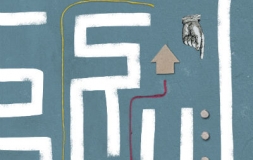Submitted by crinadmin on
A South American country bordering Guyana, French Guiana and Brazil, Suriname was a Dutch colony until it became independent in 1975. One of the smallest countries in South America, it is also one of the most ethnically diverse with descendents from African slaves and Indian and Indonesian servants. After political turbulence in the 1980s and early 1990s, stability has increased and Suriname currently operates as a democratic republic, where the president is both chief of government and head of government and elections are generally judged free and fair. Some of its major human rights violations include discrimination against women, girls, indigenous people and minority groups, child labour and trafficking of women and children.
Organisations in Suriname
- Attorneys for the Rights of the Child
- Child Helpline International
- Foundation for Human Development
- Gezin en Recht
- Global Campaign for Education
- Human Rights Education Associates
- International Centre for Child and Youth Studies
- International Planned Parenthood Federation
- SOS Children's Villages International
- Stichting Sanomaro Esa
- UNESCO
- Women's World Summit Foundation
- World Association of Girl Guides and Girl Scouts (WAGGGS)
- Young in Prison

